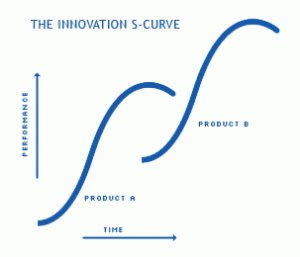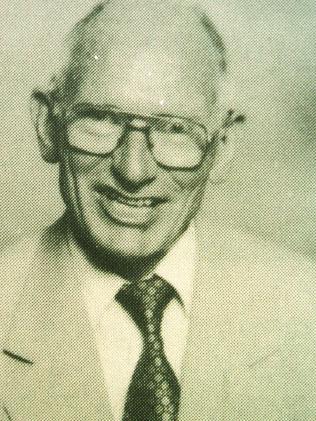How does innovation occur?
When does innovation occur? Rarely, I would suggest. Most organisations don’t innovate unless they are threatened, out of necessity. If things are going along well why innovate?
The theory of the S Curve (or innovation curve) suggests that the performance of a product, or an organisation improves over time as you refine and get better at it. But then decay begins, followed by a rapid decline. We see examples of this all the time. Once great organisations disappear (think Kodak).
More often than not organisations fail to see the tipping point, the point at which their product reaches the end of its time in the spot light. Only when they realise that they are in decline (falling sales, falling enrolments, poor product reviews, etc.) do they realise that they have to innovate or perish.
The good organisations realise that they have to innovate before their current product reaches its pinnacle.
So how does innovation occur?
The secret is in your people.
When groups work well the result is usually a product of more than the sum of individual achievements.
Organisations that rely on the ‘hero’ CEO, or leader will only ever be as good as that single individual. The ideas that he/she generates will only be as great as that person’s imagination.
The role of the leader then, is not to generate the ideas, but to create the conditions for innovation to occur. Those conditions are simple. They have nothing to do with ‘innovation camps’, innovation hack-a-thons, programs or professional development, and everything to do with trust.
Humans are naturally creative beings. We all have imaginations. We love to dream. But when we come to work we leave the dreaming for lunchtime and get on with the business of our job. The boundaries for our work are put in place and reinforced with KPIs, accountability measures and deadlines (and for schools, league tables).
For innovation to occur the leader has to let go of control and allow people to dream, to ponder on the ‘what if’, and take risks with ideas that could at first glance, appear contrary to the organisation’s key objectives. Essentially, the leader has to create a culture of trust.
It is mind-blowing when the leader does this successfully. In high trust cultures people will willingly put in the extra effort. They will work harder. They will do their set job and generate new ideas and solutions. They do this because people love to create. They love to know that what they are doing is making a difference. They are naturally loyal, particularly to places that value and trust them.
How does innovation occur? It occurs when people are allowed to think, dream, take risks, try new things, collaborate and learn. When organisations realise that it is as simple as trusting their staff they will become amazing.





